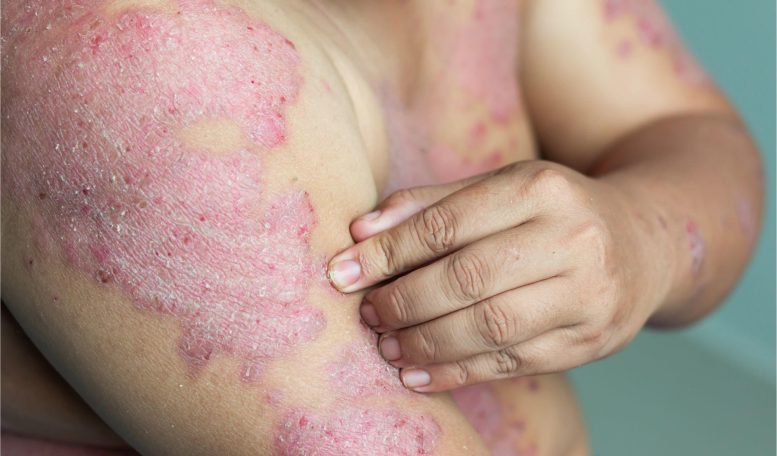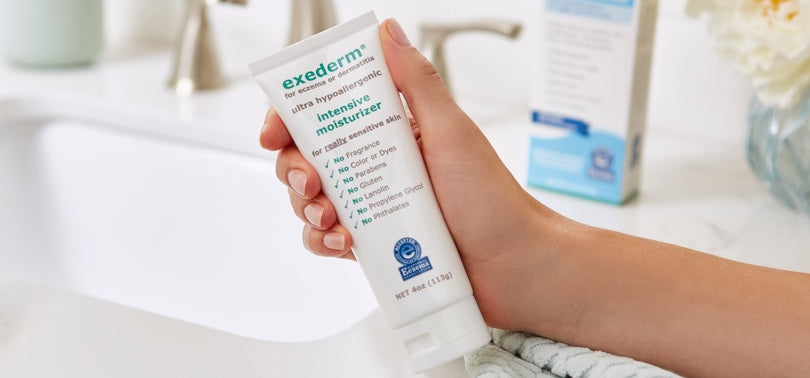If you’re struggling with eczema, you’re not alone. Millions of people look for home remedies for eczema to find natural relief from the itching, redness, and irritation that this skin condition brings. Eruption can feel overwhelming, but with the right knowledge and lifestyle changes, you can manage it more comfortably at home.
In this article, we’ll cover what causes eruption, its symptoms, what you should and shouldn’t do, foods that help, foods to avoid, and some frequently asked questions to guide you further.

What Is Eczema?
Eczema, also known as atopic dermatitis, is a common skin condition that causes inflammation, itching, and dry skin. It can affect people of all ages, but it’s particularly common in children. Eczema isn’t contagious, but it can be uncomfortable and sometimes lead to infections if the skin gets broken from scratching.
Causes of Eczema
The exact cause of sores is not completely understood, but experts believe it results from a combination of factors:
- Genetics: If eczema, asthma, or hay fever runs in your family, you may be more likely to develop it.
- Immune System Dysfunction: An overactive immune system can cause eczema flare-ups.
- Environmental Factors: Pollen, pet dander, mold, and dust mites can trigger eczema.
- Skin Barrier Issues: In eczema sufferers, the skin doesn’t retain moisture well, allowing irritants to penetrate.
- Stress: Emotional stress can worsen eczema symptoms.
- Allergens: Certain soaps, detergents, and fabrics can irritate sensitive skin.
- Weather: Cold, dry weather or excessive heat and sweating can trigger symptoms.

Symptoms of Eczema
Recognizing skin disease symptoms early can help you manage it better. Common symptoms include:
- Dry, sensitive skin
- Red, inflamed areas
- Intense itching
- Rough or scaly patches
- Oozing or crusting
- Swelling in affected areas
- Darkened skin around the eyes (especially in chronic cases)
Symptoms can vary depending on the individual and the severity of the condition.
What to Do If You Have Eczema
Taking proper care of your skin and your lifestyle can make a big difference. Here’s what you should do:

1. Moisturize Daily
Keeping your skin hydrated is crucial. Apply a fragrance-free, thick moisturizer several times a day, especially after bathing. you can Exederm shampoo for eczema, its good for skin dermatitis.
2. Take Short, Lukewarm Baths
Hot water can strip your skin’s natural oils, worsening skin disease. Opt for short baths with lukewarm water instead.
3. Use Gentle, Unscented Products
Fragrances and dyes can irritate your skin. Choose hypoallergenic soaps, detergents, and skin products.
4. Wear Soft, Breathable Fabrics
Natural fibers like cotton are ideal. Avoid rough materials like wool, which can worsen itching.
5. Manage Stress
Practice mindfulness, yoga, or other relaxation techniques. Stress can trigger or worsen eczema.
6. Identify and Avoid Triggers
Keep a journal to track flare-ups and identify what triggers your eczema, such as certain foods, soaps, or environmental factors.
What Not to Do If You Have dermatitis
Just as important as knowing what to do is knowing what to avoid:
- Don’t Scratch: Scratching can break the skin, leading to infections.
- Don’t Use Harsh Chemicals: Avoid cleaning products and personal care items with strong chemicals.
- Don’t Overheat: Sweating can worsen eczema, so stay cool.
- Don’t Skip Moisturizing: Even when your skin feels okay, keep moisturizing.
- Don’t Use Hot Water: It dries out your skin even more.
- Don’t Self-Medicate Without Consulting a Doctor: Some treatments might make eczema worse.
Foods to Eat for Eczema Relief
Your diet plays a surprisingly big role in managing eczema. Anti-inflammatory foods can help soothe your skin from within.
Best Foods for eruption:
- Fatty Fish (salmon, mackerel): Rich in omega-3 fatty acids that reduce inflammation.
- Leafy Greens (spinach, kale): Packed with antioxidants.
- Berries (blueberries, strawberries): High in antioxidants.
- Probiotic Foods (yogurt, kefir, sauerkraut): Support gut health, which is linked to skin health.
- Nuts and Seeds (walnuts, flaxseeds): Another good source of healthy fats.
- Turmeric: Contains curcumin, known for its anti-inflammatory properties.
Foods to Avoid with Eczema
Certain foods can trigger or worsen eruption flare-ups, especially if you have food sensitivities.
Foods to Limit or Avoid:
- Dairy Products (milk, cheese, yogurt): Can cause inflammation in some people.
- Gluten (wheat, barley, rye): May aggravate rushes in sensitive individuals.
- Processed Foods (fast food, packaged snacks): High in additives and unhealthy fats.
- Sugary Foods (cakes, candies, soft drinks): Sugar can trigger inflammation.
- Tomatoes and Citrus Fruits: Can cause irritation in some people.
- Eggs: A common allergen that may worsen dermatitis for some individuals.
Remember, everyone’s body reacts differently. It’s a good idea to work with a healthcare professional to identify personal triggers.
Home Remedies for Eczema
Here are some tried-and-true home remedies for eczema you can try:
1. Oatmeal Baths
Oatmeal soothes itchy, irritated skin. Grind plain oatmeal into a fine powder and add it to lukewarm bathwater.

2. Coconut Oil
Natural coconut oil moisturizes and reduces bacteria on the skin. Apply it directly to affected areas.
3. Aloe Vera Gel
Pure aloe vera soothes redness and irritation. Choose a product without added chemicals.
4. Honey
Honey has antibacterial and anti-inflammatory properties. Apply a thin layer to dermatitis patches for relief.
5. Sunflower Oil
Sunflower oil improves the skin barrier and hydrates the skin. Use after bathing for best results.

6. Apple Cider Vinegar
Diluted apple cider vinegar (mix with water 1:1) can help balance the skin’s acidity levels. Do a patch test first.
Frequently Asked Questions About Eczema
1. Can eczema go away permanently?
Eczema can improve with proper care, but it’s often a lifelong condition. Some children outgrow it, but adults usually manage it throughout life.
2. Is eczema contagious?
No, eczema is not contagious. You can’t catch it from someone else.
3. Can stress make eczema worse?
Yes! Stress is a common trigger that can lead to flare-ups.
4. How often should I moisturize if I have eczema?
At least twice a day, and always after bathing.
5. Are natural remedies better than prescription medications?
Natural remedies can be effective for mild cases, but severe sores may need medical treatment. Always consult your doctor before stopping prescribed medication.
6. Can diet really affect eczema?
Yes. Certain foods can trigger flare-ups while others may help reduce inflammation.
7. Is it safe to use essential oils for eczema?
Some essential oils like tea tree or chamomile can help, but they must be diluted properly. Always do a patch test first.
Living with inflammation isn’t easy, but with the right home remedies for eczema, you can reduce flare-ups and feel more comfortable in your skin. By moisturizing daily, eating the right foods, managing stress, and using gentle skincare practices, you can naturally soothe your symptoms.
Everyone’s inflammation journey is a little different — be patient with yourself, listen to your body, and don’t hesitate to reach out to a healthcare professional if you need extra support.


Pingback: 15 Best Home Remedies for Allergies You Must Try - beauty and wellness